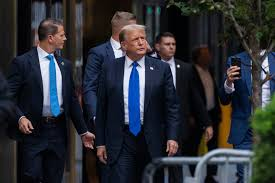
The US Supreme Court recently engaged in intense oral arguments regarding the legality of the large-scale reciprocal tariffs imposed by former President Trump. The core issue of the case is whether the tariff policies implemented during Trump’s term infringed upon Congress’s exclusive power to levy taxes, as stipulated by the US Constitution. The debate in this case has attracted widespread attention, particularly due to the opposing stances between conservative and liberal justices on the Supreme Court.
Chief Justice John Roberts explicitly stated that President Trump’s imposition of tariffs essentially constituted a tax on the American people, a power that should belong to Congress rather than being unilaterally decided by the president. His remarks indicated that although Trump had influenced the court’s structure through judicial appointments, the core issue in this case remains Congress’s taxing power, not the president’s executive authority.
It is worth noting that Trump successfully appointed three justices during his term, including Neil Gorsuch, Amy Coney Barrett, and Brett Kavanaugh. However, both Gorsuch and Barrett raised questions about Trump’s tariff policies during the case’s proceedings and delved into the legal arguments put forward by tariff opponents. Their attitudes suggest that even the conservative justices appointed by Trump did not fully support the policy.
Conservative justices hold a majority on the US Supreme Court, with a ratio of 6:3. This ratio typically implies that cases are likely to lean in a conservative direction. However, the current debate reveals that even among conservative justices, many have expressed doubts about Trump’s tariff policies. Nevertheless, the court’s final ruling is still expected to be announced in December, and predictions about the outcome remain highly uncertain.
According to data from the prediction platform Polymarket, before the oral arguments, Trump’s probability of winning the case was 40%. However, after the oral arguments, this probability dropped sharply to 27%. During the hearings, Trump’s probability of victory even hit a new low of 18%, indicating a significant decline in the court’s support for Trump’s tariff policies.
The outcome of this case will not only determine whether Trump’s policies during his presidency can remain in effect but could also have far-reaching implications for future US trade policies, tariff imposition authority, and the division of power between the president and Congress. Although Trump’s side still hopes the court will uphold his tariff policies, the current situation suggests that the Supreme Court’s final ruling may deal a significant blow to him.
















